






Study in Ireland
GDP
$ 457.5 Billion (28th)
Population
5 million
Language
Irish
Capital
Dublin
Currency
Euro €
Temperature
-19° C to 33° C
- Why Study in Ireland
- Accommodation
- Student Visa Process
- Post Admission
- Top Universities
- Top Courses
- FAQ
Why Study in Ireland
- Irish Education System is ranked among the Top 20 in the European countries by IMD World Competitiveness Yearbook
- A fastest growing economy in Europe and stands at the 6th position being the most competitive in the world
- As per Global Peace Index 2019, Ireland is the 12th most peaceful and one of the safest countries for international students.
- Ranked at 12th position as per Global Innovation Index 2019, for providing some of the top research institutions of the world
- The 16th happiest place in the world as per the 2019 World Happiness Report, leaving behind countries like the US, Germany, Spain, etc.

Ireland holds a prominent global reputation in providing standard educational courses. Institutions take pride in their level of commitment to render excellence in academics and nurturing rich educational culture. Most of the renowned institutions have state-of-the-art facilities that provide modern amenities to their students. The classroom culture is systematized and well-structured with lectures, simulations, seminars, group discussions, coursework, and projects. Besides, the institute offers 5000 pus courses in various streams of bachelors, masters, and doctorate levels, apart from UG and PG diploma courses. Some of the specialized key fields covered by Ireland are immunology, nanotechnology, material science, business studies, economics, technology, and humanities.
Accommodation (Cost of living expenses)
- Dublin – EUR 1100 – EUR 1800 per month
- Cork – EUR 860 – EUR 1400 per month
- Galway – EUR 800 – EUR 1100 per month
Higher educational institutions offer the students who come to study in Ireland, a place to stay with resident halls. They cost on an average around EUR 200-300 per month. The halls are well-furnished with subtle designs to give enough comfort to the students to adjust with their counterparts arriving from diversified countries. If you cannot manage to get institution accommodation, a rental apartment or a homestay living is also available. Some of the routine expenditure that may be incurred while studying on monthly basis in Ireland are:
| Cost of Living Items | Cost (EUR) Per month |
| Independent Living | EUR 427 |
| With partner/child | EUR 470 |
| On-Campus | EUR 300-600 |
| Utilities | EUR 130 |
| Internet | Up to EUR |
| Food (Student discounts available in supermarkets) | EUR 250 |
| Travel (public transport) | EUR 50-55 (Student discount) |
| Bicycle (On rent) | EUR 20 (per day) |
Student Visa Process
Also, you must know what type of visa you need to study in Ireland. There are two types of visas applicable:
- C-type study visa – Programs for less than 3 months (90 days)
- D-type study visa – Programs above 3 months. (Non-EU students need to register with Garda National Immigration Bureau)
Ireland Student Visa Process
1. Get an acceptance letter from Recognized Ireland University
Apply for a visa once you receive an acceptance letter from a University in Ireland2. Take an appointment with your local consulate or at VFS
Make your application in person from your nearest Indian embassy or consulate. If possible, book an appointment online or via VFS especially for studying in Ireland university.3. Finish your application and provide documents
While you attend your visa appointment you must complete and sign a visa application, submit it with the necessary documents (as listed below)4. Wait for the decision
The visa application process can take between 4 to 8 weeks. You can track the progress of your application on the Irish visa office/embassy/consulate5. Apply for the residence permit
Soon after you arrive in Ireland, you will need to apply for a residence permit within one month.
Attend Your Visa Appointment
Documents Required for Student Visa In Ireland
- Two recent color passport-size photographs
- Passport and a full copy of any previous passports
- A signed letter of application including your full contact details (stating the reason you want to come to Ireland)
- Letter of Acceptance from the college/university
- Evidence accounting for any gaps in your educational history
- Proof of payment of the registration and tuition fees
- Copies of all academic qualifications and exam results required for university studies
- English language proficiency certificate
- Proof you have sufficient funds to support your stay in Ireland without recourse to public funds, or the reliance on casual employment
- Medical Insurance
- Commitment to leave Ireland on the expiry of your visa
Work Opportunities (Post Admission)
Different types of visas are offered to international students who desire to study in Ireland, based on the system of stamps. The stamps have different regulations for each. All the students who wish to work part-time while studying in Ireland, need to apply for a Stamp 2 visa. The stamp 2 visa is issued with a set of provisional rules and regulations putting control on how much each student can get in the country. Stamp 2 visa holder can work under the below conditions:
- In progress academic session: Work for 20 hours per week
- In May, June, July, August – Work for 40 hours per week
- In high demand work during holidays – Work for 40 hours per week from 15 Dec to 15 Jan
For gaining part-time work eligibility while studying in Ireland, you need to fulfill the following conditions:
- Get registered with local police or the GNIB (Garda National Immigration Bureau)
- Get acceptance into a course recognized by the Minister of Education and Skills
- Get Enrolled in a full-time course at or above NFQ Level 7 (Bachelor’s degree as per the National Framework of Qualifications)
- Take classes from 8 AM to 6 PM per week
- Take a minimum 1-year long course
Top Universities in Ireland









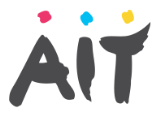


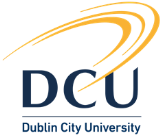
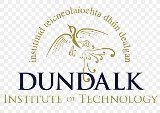

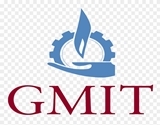
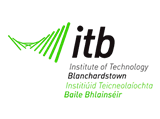




Top Courses
Before selecting your destination country, it is also important to research the top courses sought by international students in those countries. This is a really good indicator to understand why students might choose to study certain courses in specific destinations. The main factors driving the favorable course choices for a study destination are the location, economy (GDP) and predominantly emerging job markets in that study destination. ApplyRobin with its years of experience and dealing with students from around the world has already listed the most preferred courses in Ireland:
FAQs
1. How much does it cost to study in Ireland?
- For EU and EEA students, the expected cost for a full year of study is between EUR 4000 – EUR 9000 for a year. For expensive programs and subjects in business and medicine, it remains EUR20000 – EUR 30000
- Students from outside the EU and EEA are expected to pay around EUR 9000 – EUR 30000 per year. Subjects like business and medicine are slightly expensive in the range.
2. Can international students work in Ireland?
The Non-EEA students with stamp 2 permissions are offered casual employment opportunities.
3. How much can an international student earn in Ireland?
4. How to get PR in Ireland after study?
Foreign students who study in Ireland and finish up their degree courses at Master’s and Ph.D. levels are eligible to stay back in Ireland for 24 months. During this period they can work for up to 40 hours per week. Further, they can apply for a work permit or a permanent residence card.
The students who have done the honors undergraduate degree will get an option to stay back for 12 months. The ordinary undergraduate degree holders are eligible to stay back only for 6 months. Those students who get enrolled in any language study and non-degree programs are not eligible for any of the above options.
5. Can a student stay/settle in Ireland after study?
6. Can I apply to Ireland without IELTS/TOEFL & SAT/GRE/GMAT?
No. You need to clear an English language test – the IELTS test for getting admissions in any of the Ireland universities. For Bachelors at least 6.0 band overall and not less than 5.5 is needed. For Masters courses at least 6.5 bands overall band score and not less than 5.5 in each component are required. The preferred score would however remain to be a 7.0band score.
Basically, there is no particular mandate to clear the IELTS/TOEFL exams for applying in any Ireland university. However, getting good scores on these exams proves highly beneficial for visa application process and early visa approvals, and also for getting scholarships from renowned universities. With very few scholarships available for international students, your profile gets easily shortlisted and becomes eligible for scholarships when it is backed by language exam scores. Nevertheless, if you want a guaranteed admission in Ireland, this may not be applicable to you.
7. What are the required documents to apply for admission to Ireland?
- Current passport
- Signed application letter with full contact details stating reasons for visiting Ireland
- Confirmation of enrollment or letter of acceptance from Irish university or institution
- Evidence of fee payment to the university
8. What is the process of Applyrobin?
- Student Counselling For University Selection
- Application Form Filling
- Documentation Support
- Follow-up With the University
- Making Payment to the University
- Get the Final Acceptance Letter
- Visa-Support
- Post Visa – Pre Departure Assistance
9. How do I get my student visa for Ireland?
1. Get an acceptance letter from Recognized Ireland University
Apply for a visa once you receive an acceptance letter from a University in Ireland2. Take an appointment with your local consulate
Make your application in person from your nearest Indian embassy or consulate. If possible, book an appointment online3. Finish your application and provide documents
While you attend your visa appointment you must complete and sign a visa application, submit it with the necessary documents (as listed below)4. Wait for the decision
The visa application process can take between 4 to 8 weeks. You can track the progress of your application on the Irish visa office/embassy/consulate5. Apply for the residence permit
Soon after you arrive in Ireland, you will need to apply for a residence permit within one month.10. How much monthly budget should a student expect in Ireland?
- Dublin: 1,100 – 1,800 EUR/month
- Cork: 860 – 1,400 EUR/month
- Galway and other smaller cities: 800 – 1,100 EUR/month
| Cost of Living Items | Cost (EUR) Per month |
| Independent Living | EUR 427 |
| With partner/child | EUR 470 |
| On-Campus | EUR 300-600 |
| Utilities | EUR 130 |
| Internet | Up to EUR |
| Food (Student discounts available in supermarkets) | EUR 250 |
| Travel (public transport) | EUR 50-55 (Student discount) |
| Bicycle (On rent) | EUR 20 (per day) |
Admission Timeline
Application Start Dates
Applications for the majority of courses open in months of September/October in the year before the course starts. For eg, for 2021 Sept/Oct intake, applications begin in September 2020.Application Start
Dates
Submission of Application
The application submission deadlines may differ for bachelor and master applications depending on university and course of study. The dates typically range from October-January.Submission of
Application
Application Result
Applicants generally receive admissions results during Jan/Feb. Admission decisions may sometimes be delayed to March depending upon the number of applicants for a specific course for Study in Ireland.Application Result
Apply for Visa
The visa processing time for a student visa for study in Ireland is not extensive. It is best for applicants to have their VISA ready during May/June to prevent any last-minute problems or delayed visa. Click for Visa checklistApply for Visa
Academic session Begins
The academic session for most universities in Ireland starts either Sept/Oct. However, there are other intakes offered also by Ireland universities.Academic session
Begins
Latest from our blogs


